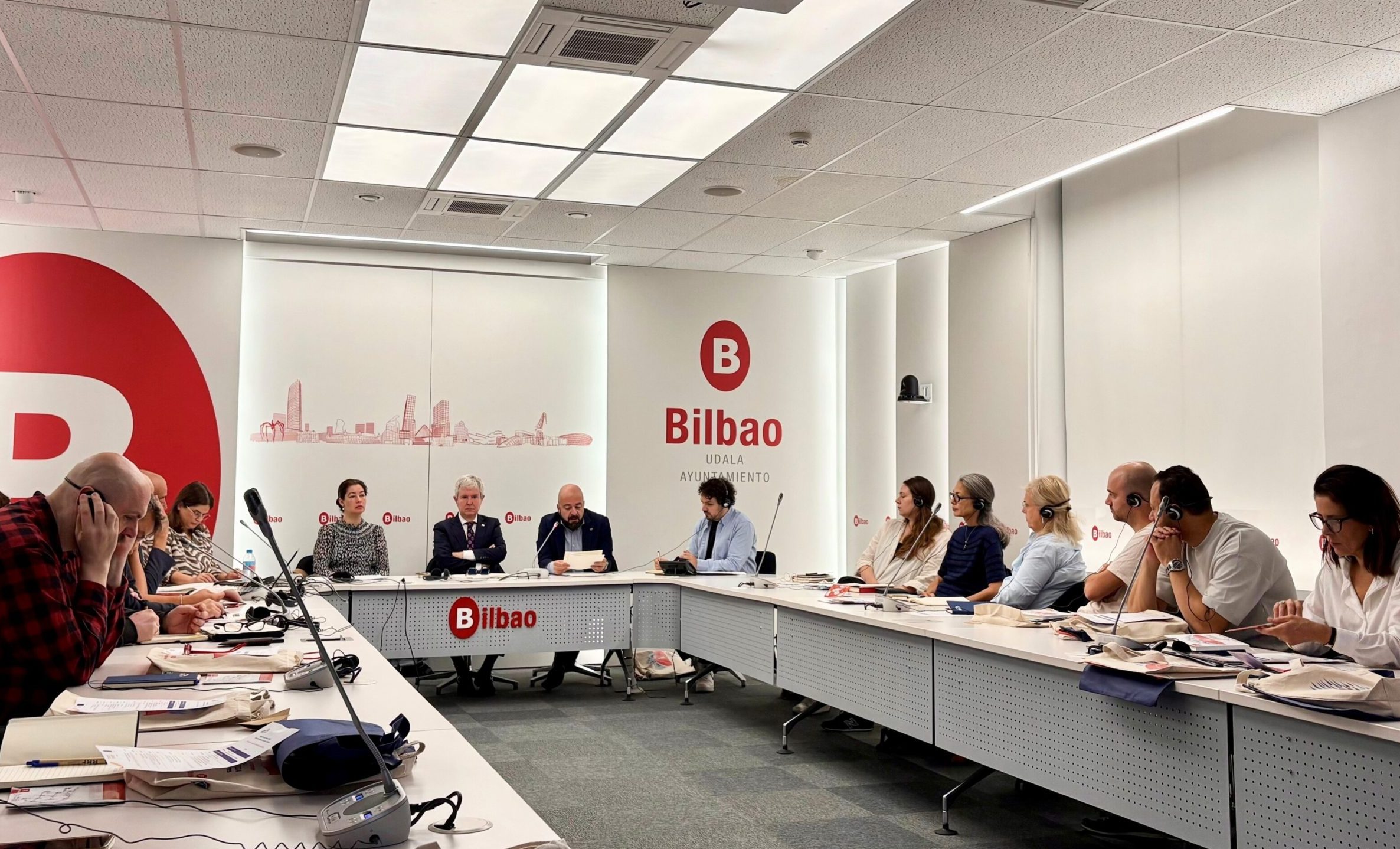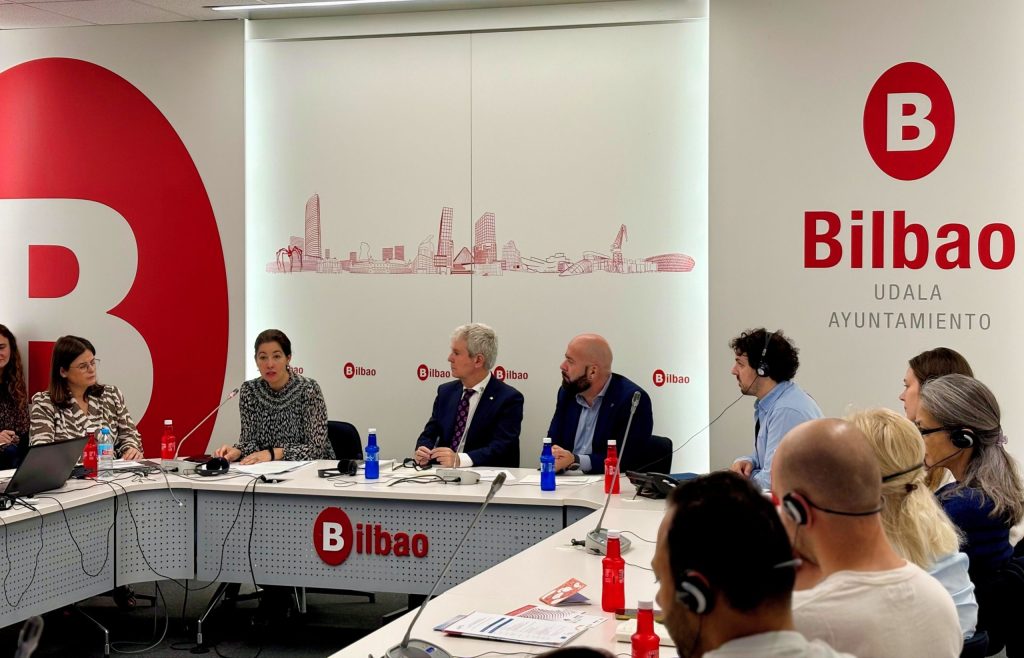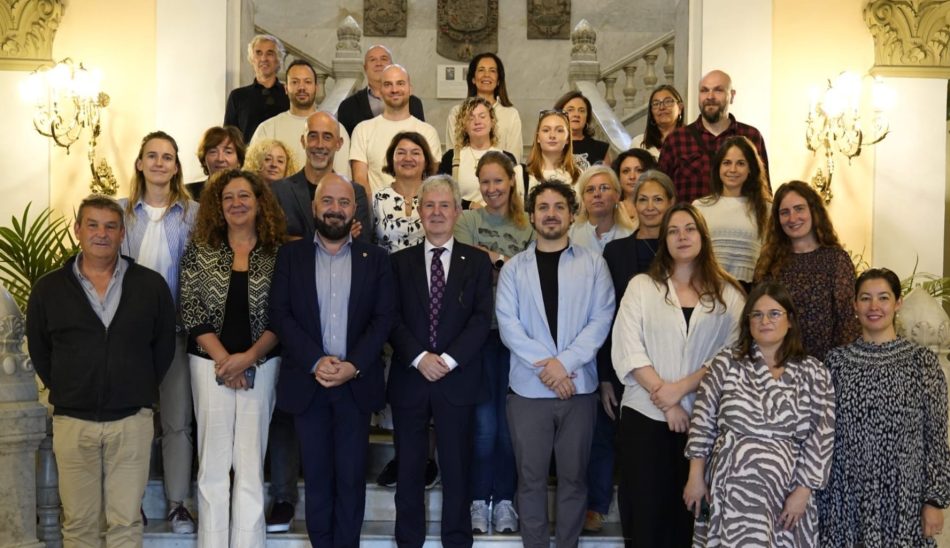At the end of September, the RRF organised a two-day field visit to Bilbao (Spain) in the framework of the Support to Frontline Workers project. The visit brought together practitioners and government representatives, from Belgium, Denmark, Germany, Finland, Ireland, Italy, Malta and Switzerland, to explore local approaches to irregular migration and multilevel collaboration as means to reach and manage migration trajectories of irregular migrants.
The exchange, facilitated by ICMPD’s Adriana Detrell-Mandado, Joachim Joris, and Veronica Grazzi, showcased Bilbao’s comprehensive and rights-based approach to migrant reception and case resolution. Through meetings with the City of Bilbao, the Basque Government, the local delegation of the Spanish central government, organisations such as IKUSPEGI, Lanbide, Harreragune, key NGOs, such as Cáritas, CEAR, Red Cross, Médicos del Mundo, and diaspora networks, participants learned about critical elements for a well functioning model of multilevel collaboration. The Harreragune one-stop desk was highlighted as an inspiring model providing immediate access to social, legal, and integration support.
Discussions also underlined the importance of coherent strategic narratives linking inclusion, protection, integration, and intense case management across governance levels, necessary for multilevel alignment. This inclusive approach, which entails an immediate connection to city services regardless of migrant status, ensures that local authorities are able to connect to and gather data on migrants, including those in irregular situations. Even so, while showcasing impressive insights on the target group, the challenge of gathering data on people experiencing homelessness hampers these efforts. As is the case throughout Europe, there is no clearcut solution to this challenge.
Key lessons emerging from the visit’s final exercise emphasised that multilevel cooperation and inclusive local policies can be essential to reaching people in vulnerable situations, while fostering trust, stablilisation and intense case resolution. These elements are key to ensuring effective outreach and support to those who might otherwise remain invisible. An online forum, dedicated to this specific visit, will be organised in late fall.
The study visit was well received in Bilbao, and was featured in local news outlets:



